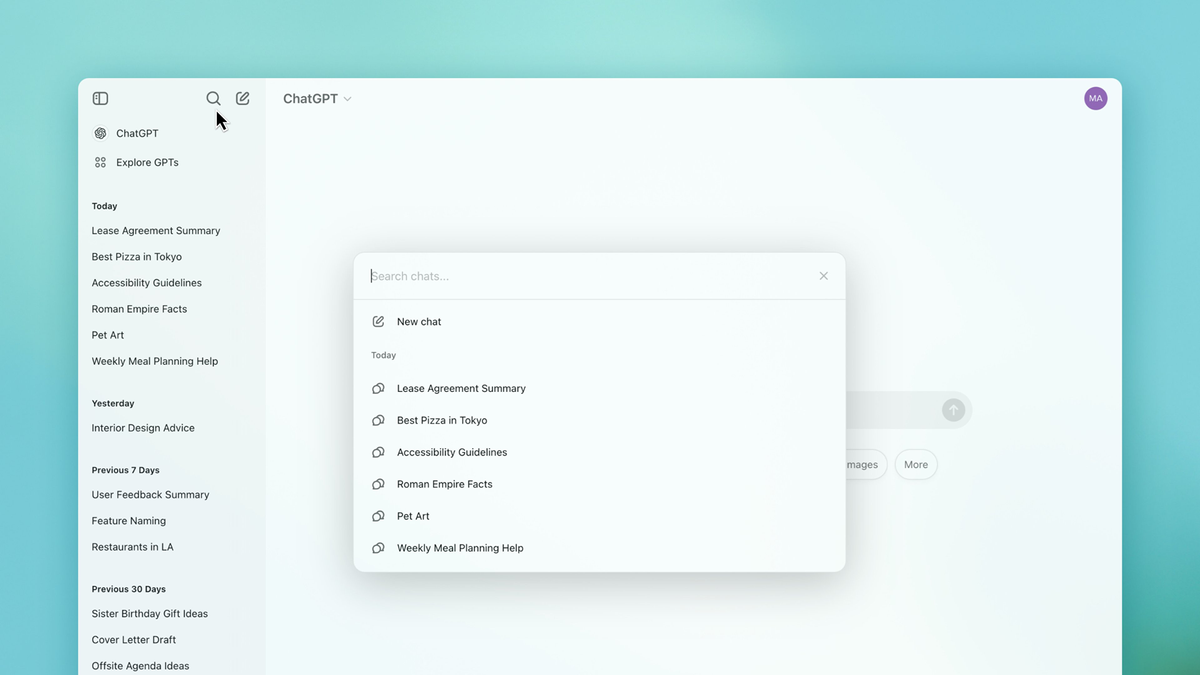The Whole Foods "whole paycheck" joke hits a little too close to home these days. Food inflation was at a 43-year high in August 2022, at 11.4%. It's since tapered off, sitting at about 2.1% today, but inflation has compounded since 2020, making even small grocery hauls a sizable expense, no matter where you do your shopping.
These days, the cost of eating out versus buying all the ingredients and cooking at home are almost the same, especially if you're cooking for only one or two people. And our convenience-driven culture has made food-delivery apps Uber Eats and DoorDash part of our busy routines, exacerbated by the exorbitant cost of groceries.
If your weekly grocery spend has become a stressor, see what artificial intelligence can do about it. If AI can write a screenplay, surely it can strategize how to save on eggs, right? I decided to take AI tool Copilot for a spin to see what it could do.
Microsoft's Copilot launched in February 2023, two months after ChatGPT's debut. You can read CNET's hands-on review of Copilot, but I chose it over competitor generative AI chatbots ChatGPT and Google's Gemini because it's got a specific "cooking assistant" GPT, which felt like a good sign to save on groceries.
Like ChatGPT, there's a free version of Copilot or a paid option for added features. It promises to be my "everyday AI companion." Let's see.
Prepping the first prompt
Before I opened up Copilot, I made a list of my grocery items and how much we usually spend as a household. Here's what I included:
- Organic coffee
- Coffee creamer
- Apples
- Bananas
- Sourdough bread
- Eggs
- Avocados
- Mushrooms
- Arugula
- Feta cheese
- Yogurt
- Granola
- Veggie chips or pretzels
- Chicken, salmon, steak
- Rice and potatoes
- Asparagus and broccoli
- Ice cream bars
- Chocolate
We spend $100 to $150 per week, for just two people.
I fed this information into Copilot and asked for suggestions to save money on groceries.
While some of the advice was interesting (like adding plant-based proteins that are cheaper), the recommendations weren't helpful for the most part. I doubt matcha or mushroom coffee are cheaper than store-brand organic coffee, and I'm looking for a less expensive way to buy eggs, not for an egg alternative in baking like applesauce. I also don't want to make my own sourdough or eat cottage cheese instead of avocados.
Prompt 2: "I prefer to eat organic, fresh produce, with a Mediterranean diet. Whole Foods is my nearest grocery store. How can I save money on the items in my list? I don't want to replace or swap out the items. Is it cheaper to buy in-store at ShopRite or shop online at Whole Foods?"
Copilot told me ShopRite is cheaper and could be worth the extra 10-minute car ride. I asked which day and time is best to shop for groceries, and it told me: "The consensus among various sources is that Wednesday is generally the best day to shop for groceries if you're looking for deals. Many stores start their new sales week on Wednesday, so you'll have first access to the week's discounts and promotions."
It also told me to wait until late evenings or just before store closing to get markdowns on perishable items including meat and produce.
So far, I've learned three valuable takeaways:
- Add cheaper protein sources such as plant-based items.
- Switch to ShopRite (a 10-minute drive vs. a 7-minute walk).
- Shop on Wednesdays, after work if possible -- or ask the store when sales usually start.
Buying groceries based on AI's suggested recipes
I decided to try this a different way and ask for meal recommendations.
Prompt 3: "Use my grocery list to plan five lunches and dinners for me and my partner. We like eating an organic Mediterranean diet and you can add tofu as another protein source. Our budget is $75 per week."
I run it through both Copilot and Copilot Cooking Assistant. I preferred the Cooking Assistant list, but it was a bit fancy for my liking. Who has the energy to cook bechamel-eggplant moussaka on a Friday night?
I asked it to use more items from my grocery list and add chicken, salmon and steak dinner dishes, as well as egg dishes for lunch and specified that I didn't want anything too fancy, time-consuming or expensive.
Copilot has me salivating!
Once I was happy with the meal plan, I asked for a shopping list of the ingredients I needed for the week, staying under $75. It gave me a shopping list with exactly how many of each item I'd need, and divided it into sections for produce, proteins, dairy, carbs, pantry and "other."
Caveat on AI's pricing knowledge
Although Copilot does have access to the internet, it's unlikely to have the most up-to-date prices, especially for daily sales at your local grocery stores. In other words, take Copilot's advice with a grain of salt.
You might need to further personalize the plan depending on your local prices. Expect to drop, replace or switch up items based on your budget once you actually get to the grocery store and see which items are on sale or which have jumped in price.
What Copilot does well is help you easily construct and curate a list of meals using your standard ingredients, so you can more strategically grocery shop.
For more ways to use AI, here's how to use Copilot to create notes on just about anything and how to use ChatGPT to find the job of your dreams.




:quality(85):upscale()/2023/09/21/802/n/1922729/d9a11ce9650c8850437280.00070284_.jpg)
:quality(85):upscale()/2024/10/30/955/n/42301552/28e49c1e6722ab5b973b38.46745005_.jpg)

:quality(85):upscale()/2024/10/30/711/n/1922441/c62313206722590ade53c4.47456265_.jpg)

 English (US) ·
English (US) ·